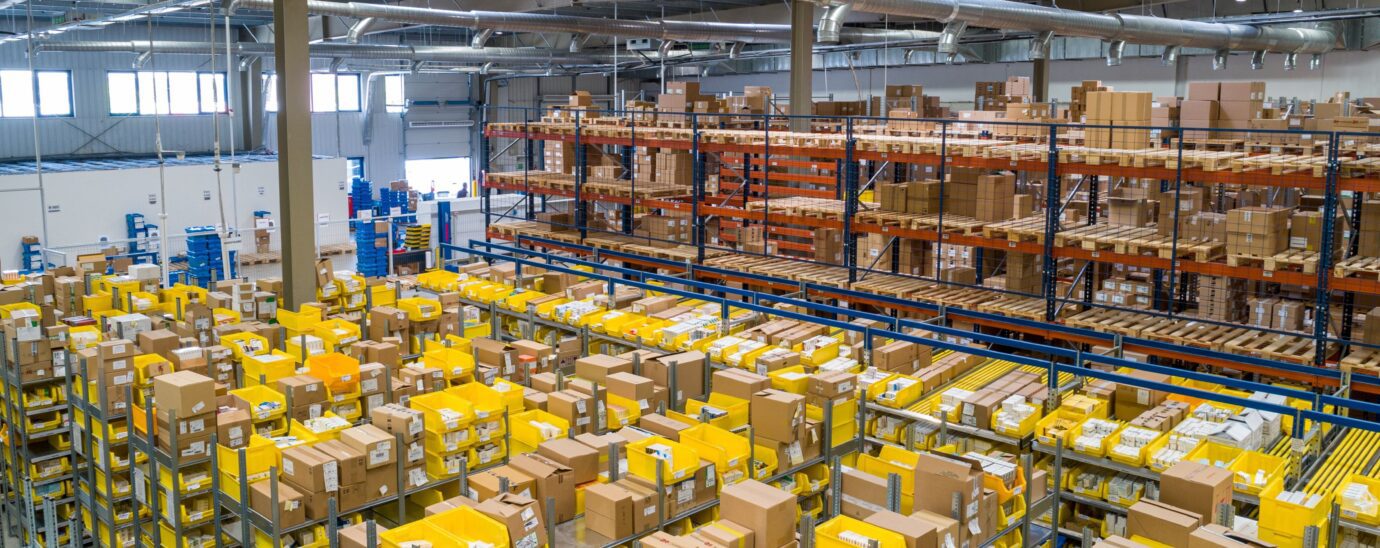Smart Labels and the intersection of technology and logistics

The delicate fabric of the ever-evolving technological landscape is being rewoven with the introduction of game-changing elements like smart labels, which are bringing the logistics industry to the forefront of innovation. These technological wonders are not only transforming the landscape of logistics, but they are also unlocking a multitude of options where precision, discretion, and efficiency are of the utmost importance.
The convergence of design and technology is shown here with the introduction of smart labels, a new product category which is a harmonic blend of slim profile design and cutting-edge technology, boasting millimetre-thick applications and embedded with low-power cellular LTE CAT-M connectivity.
Smart labels are not only a game-changer for the logistic and package labelling industry but have a considerable impact on many other industries, due to the numerous benefits of the ability to track and trace parcels and the wide array of sensors such smart labels can carry.
Furthermore, due to their small form factor and ultra-slim profile, they make it possible to track and trace a wide variety of objects, ranging from small envelopes to large packages that require a flat tracker, as opposed to a bulky traditional device.
How smart labels will impact different sectors
Incorporating cutting-edge connectivity technology in smart labels, which is frequently combined with 3D-printed batteries, guarantees unrivalled durability and dependability. Low-power cellular LTE CAT-M SIM technology makes it possible to track such labels globally, providing geofence warnings and giving customers unprecedented visibility, opening the door to real-time tracking and monitoring capabilities.
This will significantly impact various sectors, such as insurance, pharmaceuticals, and the food industry. Let’s explore these further.
Insurance
Integrating smart labels into the insurance sector signifies a transformational shift, opening innovation avenues and enhancing customer offerings. Smart labels can monitor and transmit data on the location, temperature, and handling of goods in real-time, fostering transparency and traceability in logistics.
For insurance companies, this real-time data can enable the creation of bespoke and dynamic insurance products, potentially reducing premiums and claims. Insurers can gauge risks more accurately and formulate policies more attuned to insured goods’ actual usage and handling. For instance, if goods are monitored for proper handling and environmental conditions, any deviation can be instantly detected, allowing immediate remedial actions and reducing the likelihood of damage-related claims.
Pharmaceuticals
Another industry in which smart labels will have a significant impact is the pharmaceutical sector, addressing crucial aspects such as product integrity, traceability, and anti-counterfeiting.
The precise tracking of pharmaceutical products from manufacturers to end-users will help ensure that temperature-sensitive medicines are transported under appropriate conditions, preventing spoilage and ensuring efficacy. Real-time alerts and geofencing will notify stakeholders if products deviate from their planned routes or if environmental conditions breach predefined thresholds, allowing immediate corrective actions.
This is pivotal for critical and high-value pharmaceuticals where even slight variances in conditions can compromise product integrity. Additionally, the enhanced traceability provided by smart labels is instrumental in combating the prevalent issue of counterfeit medicines, enabling authentication and ensuring that consumers receive genuine products.
Food and drink
Similarly, reducing waste in the food and drink industry is another strong use case for this new product category, ensuring food safety, quality, and traceability. In an industry where product freshness and proper handling are paramount, smart labels provide real-time monitoring of temperature and environmental conditions, mitigating the risk of spoilage and contamination.
This is particularly crucial for perishable goods like meat, dairy, and produce, where deviations in storage conditions can have severe implications on product quality and safety.
Today’s technology is but a fraction of what is possible
The unrelenting push towards technological progress is likely to result in the development of smart labels that are more adaptable and complex than ever before, with expanded capacities and functionalities. Smart labels are essential to achieving supply chain transparency, operational efficiency, and sustainability.
Ongoing research and development are poised to introduce innovations that cater to the evolving needs of industries. These innovations will integrate advanced sensors, enhanced connectivity, and sophisticated data analytics. One promising area in which smart labels will make a significant impact is when combined with the blockchain.
Smart labels and blockchain
The potential combination of blockchain technology and smart labels presents a ground-breaking opportunity that would improve the robustness and security of smart contracts and provide a platform for contract execution that is transparent and immutable.
Smart labels offer a solution to the limitations of smart contracts that use blockchain technology, which, up to now, have lacked a universally adaptable tracking device equipped with diverse sensors. Traditional IoT trackers have been impractical due to their cumbersome nature, rendering this capability more of a concept than a reality.
Smart labels, however, present a potential breakthrough. Their lightweight and sleek design integrates directly into packaging labels, providing an opportunity for a more universal application. This innovation can supply blockchain-based smart contracts with the necessary sensor technology and tracking capabilities, paving the way for them to become a practical and prevalent solution.
In conclusion
The logistics industry, a crucial backbone of our daily lives and global economy, operates seamlessly behind the scenes.
Smart labels are revolutionizing this vital sector, blending advanced technology with logistics and fostering a future marked by transparency, efficiency, and trust. They exemplify technology’s transformational power, offering sustainable and innovative solutions across diverse environments and highlighting the future where technology and logistics converge to unlock boundless opportunities and transformations.
This exploration into smart labels and technology foretells a future in logistics rich in innovation, growth, and value, presenting a realm of enhanced efficiency, security, and limitless possibilities.
